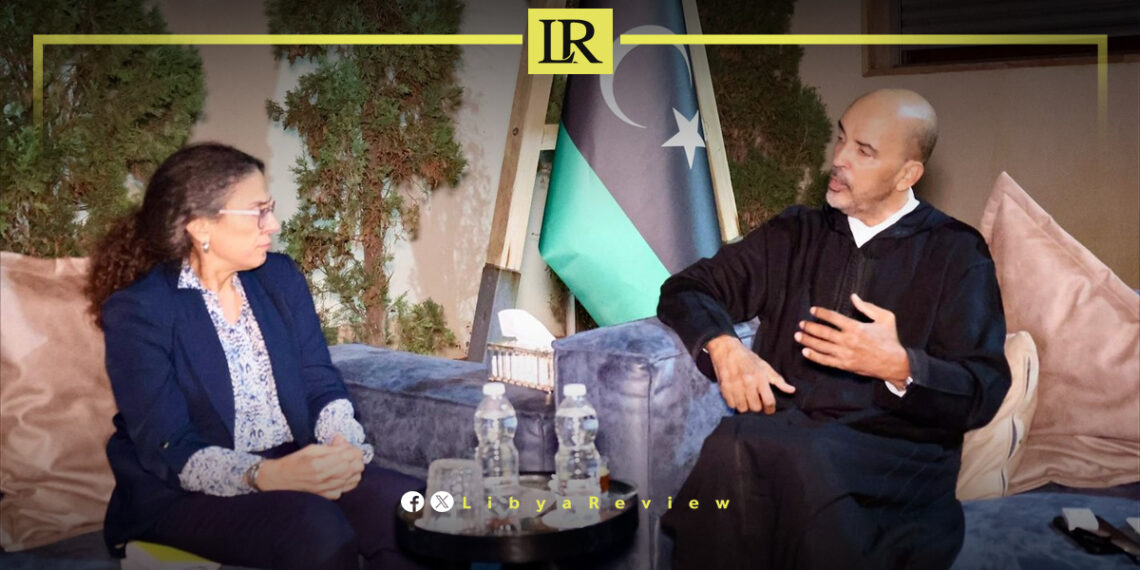On Monday, Libyan Presidential Council member Musa Al-Koni held discussions with Stephanie Khoury, the Acting Head of the United Nations Support Mission in Libya (UNSMIL) and Deputy Special Representative of the UN Secretary-General, to address Libya’s ongoing political deadlock and explore strategies for achieving national stability.
According to a statement from the Presidential Council, the talks centered on the latest developments within Libya, particularly the prolonged political stalemate and efforts to reignite the peace process.
Khoury reaffirmed the UN’s commitment to supporting the Presidential Council’s stability efforts, emphasizing that UNSMIL continues to work closely with key international players and Libyan stakeholders to foster dialogue and pursue a comprehensive political settlement. This would pave the way for the long-awaited national elections, which are viewed as critical for establishing a foundation of peace and unity in Libya.
In a separate meeting the same day, Al-Koni met with Italian Ambassador Gianluca Alberini to discuss Prime Minister Giorgia Meloni’s recent visit to Tripoli and explore ways to strengthen Libyan-Italian cooperation. The discussions covered key areas of partnership, including healthcare, education, archaeology, and economic development, with both sides underscoring the importance of joint technical committees in advancing these initiatives.
Al-Koni also expressed optimism that recent changes in the Central Bank of Libya’s leadership would drive economic growth and remove barriers to national development. He emphasized that a revitalized banking sector is essential for advancing stability, economic resilience, and addressing the challenges that have hampered Libya’s progress over recent years.
Libya has faced a complex political landscape since the 2011 ousting of former leader Muammar Gaddafi, with the country divided between rival factions and governments in the east and west. Despite initial agreements to unify and establish a democratic governance structure, ongoing political and military divides have kept Libya in a state of prolonged crisis. The Libyan Political Dialogue Forum (LPDF) had laid a foundation for temporary executive authority and scheduled elections, but deep-seated conflicts continue to obstruct this path.
International actors like the United Nations and Italy remain active in promoting Libya’s stability. UNSMIL has taken a central role in facilitating dialogue between Libyan factions, while Italy has a strong interest in Libya’s stability given its geographic proximity and concerns around migration


